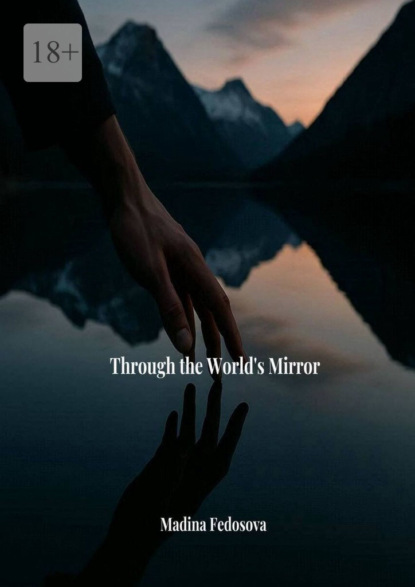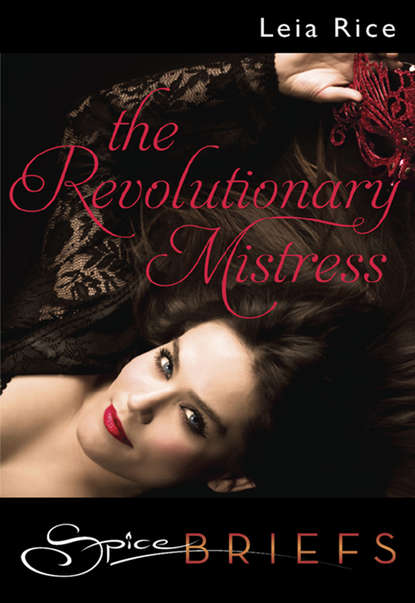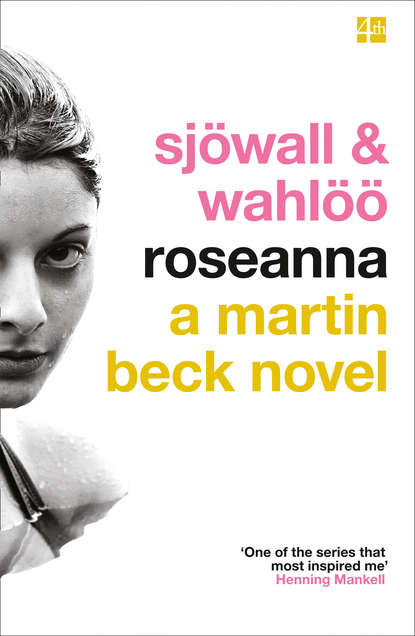- -
- 100%
- +

© Madina Fedosova, 2025
ISBN 978-5-0068-1944-3
Created with Ridero smart publishing system
Author’s Preface
Do you know what it’s like to live in a world of reflections? I’m not talking about literal reflections in mirrors or shop windows, but about that elusive reality in which we all exist. A world where first impressions are often deceiving, where a beautiful facade can conceal emptiness, and behind a mask of indifference lies a deep wound. A world where we constantly search for our own reflection in other people, in their opinions, in their gaze.
As a writer, I constantly face this problem of reflections. When creating characters, I try to find something of myself in them, yet at the same time, endow them with their own uniqueness. I strive to show the reader not only the external side of life but also the inner world of the heroes, their thoughts, their feelings, their fears and hopes.
Michael’s story began with a simple question: how does one find oneself in a world that is constantly changing, a world that offers us many paths but does not guarantee we will choose the right one? Michael is a photographer, and he is used to seeing the world through the lens of his camera. He believes that photography can capture the truth, freeze a moment, preserve memories. But at some point, he realizes that a photograph is merely a reflection of reality, not reality itself.
He embarks on a journey across Europe to find something real, something that will not vanish with time. He seeks inspiration, he seeks beauty, he seeks meaning. He visits Paris, Rome, Venice – cities full of history, art, and culture. He meets different people, each of whom leaves their mark on his soul.
But most importantly, he is searching for his own reflection. He is trying to understand who he is, what he wants, where he is going. He is searching for answers to the questions that torment him: what is freedom, what is love, what is happiness?
This book is not a travel guide to Europe. It is a journey into oneself. It is an attempt to understand how the reflections we see around us help us find our identity, our place in the world. It is a conversation about the importance of remaining true to oneself, no matter what.
I invite you to embark on this journey with Michael. I do not know if he will find the answers to his questions. But I hope that his story will inspire you to your own searches, your own discoveries. And I believe that after reading this book, you will be able to see the world and yourself in it in a new way.
Prologue
The Rainy Bridge
The raindrops fell quietly and monotonously, with a doomed regularity, as if counting down the last seconds of the departing day, the final moments of hope. They slid over the rough surface of the concrete, leaving behind fleeting dark streaks that immediately vanished, like memories slipping from the mind, like words spoken in vain.
The wind, usually so insistent and sharp, was surprisingly restrained today. It was as if it sensed the prevailing atmosphere of melancholy and hopelessness and did not want to disturb it. It merely gently stirred the flaps of the coat belonging to the man standing at the railing and lightly tousled his hair, which had escaped from under his old, worn-out hat.
The man stood motionless, like a statue, his gaze fixed on the murky water of the river.
The river flowed slowly and restlessly, as if reflecting the turmoil reigning in his soul. In its dark waters floated fragments of branches, fallen leaves, crumpled pieces of paper, and other debris discarded by the city’s careless inhabitants. It all seemed like a symbol of the frailty and transience of human life, a reminder that everything passes, everything disappears, everything turns to dust.
He was mute. Not from birth. He once knew how to speak, laugh, argue, express his thoughts and feelings with words. But then something happened. Something that forever changed his life. Something that forced him to fall silent. And now he understood that words were no longer needed. That they only hindered seeing the true picture of the world, distorting it, clouding it.
He looked at the city’s reflection in the river. At the blurred lights of the lanterns, trembling in the water, at the ghostly silhouettes of houses reflected on the dark surface, at the lonely boats gliding along the river like shadows of the past. And in this reflection, he saw something more than just an image. He saw the souls of people, their hidden fears, their secret hopes, their unfulfilled dreams. He took his old, worn camera out of his bag.
He only photographed reflections. It had become his obsession, his passion, his reason for living. He believed that the true essence of a person was hidden in reflections, that one could see in them what was impossible to discern in real life. As if a reflection was a mirror of the soul, showing its true face, without embellishment or masks.
He froze, waiting, and suddenly…
In the reflection, over the blurred city lights and trembling silhouettes of houses, a face appeared.
It wasn’t just a face; it was a portrait. The face of an old man with deep wrinkles that scarred his skin like a map of a life lived. His eyes, deep-set and surrounded by dark shadows, looked directly at him, as if penetrating into his very soul.
There was something unusual in this face, something both attractive and repulsive at the same time.
There was wisdom accumulated through years of suffering and reflection, but there was also a kind of mad, all-consuming anguish.
The old man looked at him in silence, and Michael felt his heart begin to beat faster. He didn’t know who this man was or why he had appeared in the reflection. But he felt it was no accident.
Suddenly, the old man smiled.
It was a strange, crooked smile, more like a grimace of pain than an expression of joy. But in that smile, there was something… liberating. As if the old man was offering to share his pain, yet at the same time showing that even in the deepest darkness, one can find light.
And then Michael noticed that the old man was silent. He was opening and closing his mouth but not uttering a word. As if he, too, was mute.
Michael felt a strange connection with this stranger. As if they were both prisoners of silence, captives of their own muteness.
And suddenly the old man raised his hand and pointed to the sky.
Or rather, to the reflection of the sky in the river.
Michael looked where the old man was pointing.
And he saw… a bird.
A lone bird flying over the city. It soared in the air, free and independent, as if mocking everyone who was chained to the earth.
And then Michael understood.
He understood what the old man was trying to tell him.
Freedom is not in words. Freedom is within us.
And he, the mute photographer, must find this freedom within himself.
The old man in the reflection smiled once more, then slowly disappeared, dissolving into the murky water of the river.
Michael was left alone.
But he no longer felt lonely.
He knew what he had to do.
He had to find this old man.
He had to learn his story.
He had to understand what it means to be free.
He tore himself away from the camera and looked up at the sky.
The rain continued to fall.
But now it didn’t seem so gloomy to him.
He smiled.
And took the shot.
Part 1
The Beginning of the Path
Chapter 1
The Mirror of Childhood
The town he grew up in was gray. Not in terms of color, although that too, but rather in terms of its soul. Gray houses, gray streets, gray faces. Even the sky above the town seemed faded, like an old photograph. The only bright spot was the circus that came once a year. But even it, with its clowns and acrobats, seemed like a kind of fake, strained joy.
He lived in a small house on the outskirts of town with his parents. His father worked at a factory, his mother in a library. They were quiet, inconspicuous people, as if afraid to attract attention. They loved him, of course, but somehow silently, reservedly. Hugs and kisses were a rarity. Their love was expressed through care: feeding, clothing, checking his homework.
There was a large mirror in the hallway at home. He often looked into it, studying his reflection. It seemed to him that in the mirror he saw not only his face but also his soul. Especially his eyes. In them, he saw a longing and a vague, undefined fear.
Once, when he was seven years old, he witnessed an accident. He was walking home from school when he heard the screech of brakes and a dull thud. Running closer, he saw a mangled car and a bloodied man lying on the asphalt. People crowded around, screaming, crying. He stood paralyzed, unable to move.
At that moment, he saw the reflection of the scene in a puddle on the road. Distorted, grotesque, but because of that, even more terrible. In that reflection, he saw not just the accident, but all the pain, all the fear, all the meaninglessness of human existence.
Something broke inside him. His voice disappeared. He tried to scream, but only a rasp came from his throat. The doctors shrugged. No physical damage. Just silence.
For a long time, he tried to get his voice back. He went to doctors, psychologists, psychics, shamans, and healers. He tried every known and unknown treatment method, from traditional medicine to folk remedies. He read prayers, meditated, fasted, and did everything he was advised. But nothing helped. His voice remained locked in his throat, like a bird in a cage.
Eventually, he resigned himself.
He understood that silence was his fate, his cross to bear until the end of his days. That he had to learn to live without a voice, that he had to find a way to express his thoughts and feelings by other means.
The photograph lay on the old wooden table, covered in a network of fine cracks like a map of a life lived. It seemed like a foreign object in his small, cluttered room, like a fragment from another world that had accidentally ended up here from a distant past. He stared at it, unblinking, as if mesmerized, as if trying to discern in the faded and yellowed image the answers to the questions that had tormented him for as long as he could remember.
In the photograph, he saw himself, a small, skinny boy of six or seven, with large, frightened eyes and disheveled hair. Next to him stood a girl, about his age, holding his hand with her small, warm palm. They were both smiling, looking directly into the camera lens, as if trying to capture this moment of happiness and carefree joy forever.
Behind them stretched an endless field, strewn with colorful wildflowers like a bright carpet spread out by nature itself. And above them stretched an endless blue sky with rare, fluffy white clouds, like huge pieces of cotton wool floating into infinity.
It was a photograph from his childhood. A photograph that under normal circumstances should have evoked bright and joyful memories of a carefree time, of playing in the field, of friends, and of a first experience of love. But instead, it only evoked a heavy feeling of loss, an unbearable pain in his chest, and a sharp desire to go back, to the past, to change what had happened. He didn’t remember who had taken that photograph.
He didn’t even remember the smell of the wildflowers that had surrounded them that day. He didn’t remember what they had said to each other, what they had dreamed about, or what they had planned for the future.
All that remained in his memory was a foggy, blurred image. The image of a girl with long, light, almost white hair, braided into a thick plait that fell almost to her waist.
The image of a girl with large, naive blue eyes, in which the whole world was reflected, with all its joys and sorrows, with all its mysteries and secrets. The image of a girl who had been his best friend, his only friend, his kindred spirit, his guardian angel.
He remembered how they loved to spend time together, escaping the boredom and grayness of the town in that endless field, where they could play, run, jump, shout at the top of their lungs, and do whatever they pleased. He remembered how they read books together, sitting under the shade of an old oak tree, and how the girl told him stories about distant countries, brave heroes, and magical creatures. He remembered how they drew pictures together, using charcoal found on the ground and colored chalk, and how the girl always praised his work, even if it wasn’t very good.
But most of all, he remembered their games with reflections.
They loved to find puddles after the rain, big and small, deep and shallow, and look at their reflection in the water. They said that in the reflection, the world seemed different, more beautiful, more mysterious, more interesting. That in the reflection, you could see what was impossible to see in real life, what was hidden from prying eyes.
The girl especially loved to look at her reflection. She could stand by a puddle for hours, admiring her face, her hair, her eyes, as if trying to solve some mystery hidden in the depths of her soul.
She said that in her reflection, she saw her true essence, her real «self,» which she couldn’t show to other people.
Once, when they were standing by a large puddle reflecting the blue sky and fluffy clouds, the girl said to him: «You should become an artist, Michael. You must learn to draw reflections. You must show the world what it could be like if you look at it from a different side, if you see it not as it really is, but as it could be.»
He had just smiled back then, embarrassed and a little confused. He didn’t know how to respond to those words. He was too young, too naive, too inexperienced to understand such things.
Despite all his efforts, he never managed to find his true essence, his real «self.»
He had lost it along with the girl from his childhood.
He didn’t know what had happened to her. He didn’t know where she had disappeared to. He didn’t know what had become of her. He didn’t know where she had gone. He only knew that one day she had simply vanished, as if dissolved into thin air, leaving him alone in this cruel and unjust world, full of pain and suffering.
He continued to look at the photograph lying on the table, as if trying to squeeze the last drops of memory from it. It seemed to him that if he looked long enough, if he concentrated hard enough, he could break through the thickness of time and return to that place, that time, to that self – the small, carefree boy who did not yet know what pain and fear were.
And suddenly…
His gaze caught on a detail he had never noticed before. Or rather, he had noticed it, but had never paid it much attention, considering it just an insignificant part of the landscape.
In the background of the photograph, behind their backs, between the sprawling branches of the trees, was visible…
A lake.
A small, quiet, mirror-like lake, as if lost in a green oasis. In the photograph, it seemed just a dark spot on the horizon, barely visible against the blue sky and fluffy clouds.
He had never thought about that lake before. It was just there, part of the landscape, a backdrop for their happy childhood games.
But now…
Now he saw something else in it.
Now he felt its pull, its alluring force, its hidden danger.
Now he remembered.
He remembered how he and her, his friend, his only friend, loved to go to that lake. They spent whole days there, enjoying the silence and peace, admiring the beauty of the surrounding nature. They loved to sit on the shore, dangling their feet in the cool water, and look at their reflection. They said that in the reflection, the world seemed different, more interesting and mysterious. That in the reflection, you could see what was impossible to see in real life.
They loved to tell each other stories, sharing their dreams and their fears. They felt free and happy, as if the whole world belonged to them.
He remembered her words: «You know, Michael, I think our reflection in the water is our true essence. It’s who we really are, without masks and pretense. It’s what we hide from other people, afraid they won’t understand or will judge us.»
Back then, he didn’t fully understand what she meant. He was too young and naive to understand such complex things.
But now, years later, looking at the photograph, he suddenly realized the full depth of her words.
He remembered what happened next.
They were at the lake again, enjoying the last warm days of the fading summer. They were sitting on the shore, looking at their reflection in the water and talking about their plans for the future.
A small, mute boy, standing on the shore of a dark, ominous lake. The water was black and still, like a mirror reflecting his own fear.
He already knew then that he was «different.» He couldn’t speak like the other children. Words got stuck in his throat like lumps of clay, refusing to come out. He was mute.
And suddenly…
They appeared.
Three bullies, older and stronger. Their faces were twisted with malice and contempt. Hatred burned in their eyes.
They emerged from behind the trees, as if deciding it was time for another «entertainment.» They walked straight towards him, clenching their fists, and he could see from their faces that he was in for trouble again. He couldn’t hear the words they were shouting, but even without words, he knew they were taunts and mockery, familiar as a morning nightmare.
They didn’t just insult him. They mocked his muteness. They made faces, pointing at his throat, as if trying to tear out what was never there.
They pushed him, kicked him, spat on him. They laughed at him, as if at a freak, a mistake of nature.
He tried to run away, but they intercepted him, roughly grabbing his arms. One of them, the tallest and meanest, spat at his feet and hissed: «Where do you think you’re going, mute? Think you can run from us?»
He tried to fight back, struggling and scratching, but they were too strong. They twisted his arms behind his back and dragged him towards the lake like a rag doll. «Let’s see if you’ll sing when you’ve swallowed some water,» another smirked, shoving him in the back.
«Maybe the fish will teach you to talk,» laughed the third, yanking his hair.
He understood what they were going to do.
They were going to drown him.
They were going to show him his place.
They were going to rid the world of the «mute trash,» as they called him.
He resisted as best he could, but they were stronger. They easily overpowered him and threw him into the cold water.
He flailed, choking and gasping for air. The water burned with cold, numbing his movements.
He felt his lungs filling with water, his body weakening, his consciousness fading.
He understood he was drowning.
And at that moment…
He saw his reflection. It was distorted, blurred, monstrous. He saw in it not only fear and pain but also… disgust.
Disgust for himself.
Disgust for his muteness that made him defenseless.
Disgust for his weakness that prevented him from fighting back.
He felt worthless, useless, deserving only of contempt.
He realized they were right.
He realized he deserved this.
He deserved to die.
He closed his eyes and stopped resisting.
He decided to drown.
He let himself go into the embrace of the dark, cold water, hoping it would be the end of his suffering.
But suddenly…
Something happened.
Someone’s hand touched him. Some force pulled him upward.
He felt himself being pulled out of the water, able to breathe again.
He opened his eyes and saw…
The sky.
A gray, joyless sky, as if reflecting his own state.
He lay on the shore, trembling all over and coughing up water.
He coughed, trying to catch his breath, and saw her. She was on her knees beside him, her face pale with fear, tears welling in her eyes. She was trembling as much as he was. She had pulled him out of the water.
He didn’t understand how she had managed it. She was small and fragile, while he – though not by much – was still bigger and stronger than her. But she had done it. She had saved him.
The bullies had disappeared. They had apparently gotten scared when they saw him drowning and had run away, leaving them alone.
She silently hugged him, holding him so tightly he could hardly breathe. But he didn’t pull away. He felt her warmth, her care, her love. And in that moment, he understood that she was all he had.
They sat on the shore for a long time, in silence, until the sun began to set. She warmed him with her body, and he warmed her with his gratitude.
When they returned home, he didn’t tell his parents what had happened. He was afraid they would scold him for going to the lake alone, or that they would try to shield him from the outside world. He didn’t want that. He wanted to be with her.
Chapter 2The First ShotFrom that day on, they became even closer. They spent all their free time together, as if afraid to miss a single moment. They walked around the town, discussing the books they had read, arguing heatedly about the meaning of life, and dreaming of a future where they would surely conquer the world. She, as always, was bursting with ideas, and he, silent and thoughtful, listened carefully, absorbing every word like a breath of fresh air.
She loved to tell him about the stars, about space, about black holes and the theory of relativity. She said that the cosmos was a reflection of our soul, that every person was a small universe, full of mysteries and secrets. «You know, Michael,» she would say, «I think if we could see the cosmos through God’s eyes, we would see our reflections there.»
She was a real treasure trove of knowledge and wisdom, despite her young age. She knew the verses of her favorite poets by heart, quoted philosophers, and pondered the meaning of existence with such a serious look that it sometimes made him laugh. But he never laughed at her. He respected her mind and her passion for knowledge.
Once, walking in the park, they came across an old chess player playing against himself. She suggested a game, and he, surprised by her boldness, agreed. She played like a real grandmaster, thinking several moves ahead and baffling him with complex combinations. He was amazed by her talent, and after the game, he told her: «Girl, you have a gift! You could become a world champion!» She just smiled and said: «Chess is just a reflection of life. You have to be able to see beyond the pieces on the board.»
They often went to the library where his mother worked. She was always happy to see them together and always found interesting books for them. She knew they loved to read and tried to encourage their interest in knowledge. «Books are mirrors, my children,» she would tell them, «they reflect our thoughts, our feelings, our dreams. Read more, and you will see the world from a different side.»
They read everything: novels, poetry, scientific treatises, historical chronicles. They discussed what they read, argued, agreed and disagreed with each other. They learned to think, analyze, doubt, and seek the truth.
And, of course, they went to the lake. They sat on the shore, looked at their reflection in the water, and talked about their plans for the future.
But something had changed.
He no longer saw disgust in his reflection. He saw gratitude. Gratitude for being alive, for having her, for being able to see this world.
School remained a place of torment for him. After the incident at the lake, the physical violence stopped, but the psychological terror continued. The bullies, like a pack of hyenas, sensed his weakness and continued to torment him, inventing new, more sophisticated ways to humiliate him.
They could put a dead mouse in his backpack, stain his clothes with paint, or simply lock him in the toilet, mocking his helplessness. The whisper of «Mute!» and the contemptuous looks followed him like an obsessive melody. He felt like an invisible man, a ghost, existing outside their world. He found solace only in her company, in her understanding eyes, in her quiet support.






